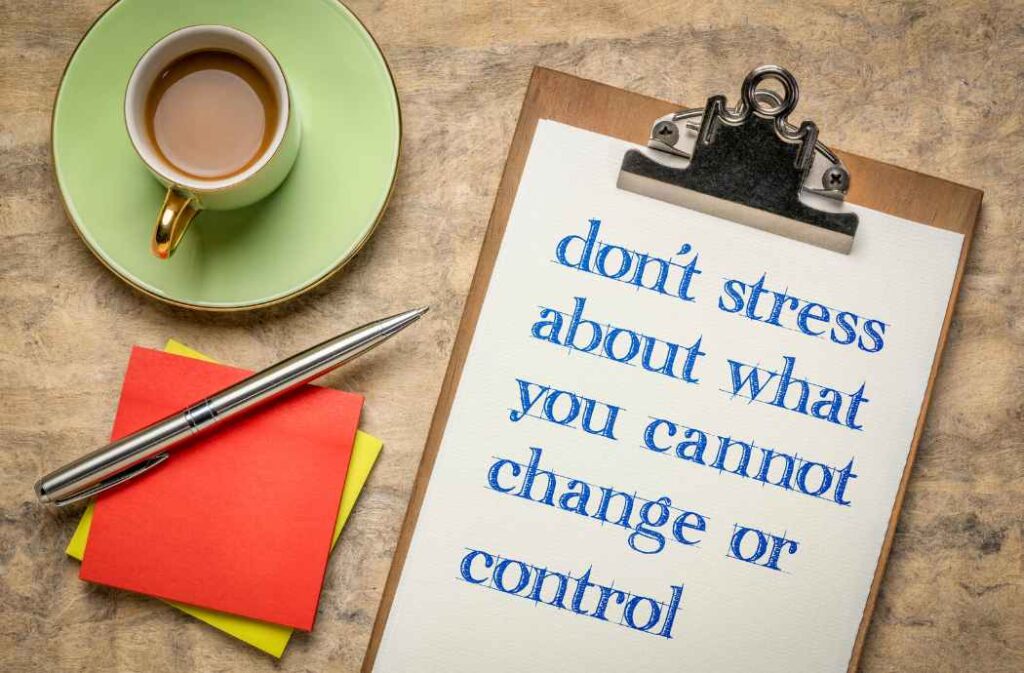Do you ever catch yourself saying things like “I’m not good enough” or “I can never do that”?
These phrases may seem harmless, but they could actually be affecting your life in more ways than you realize.
According to the U.S. National Science Foundation, the average person has 12,000 to 60,000 thoughts per day, and a whopping 80% of them are negative. That means that for every positive thought, there are four negative ones. No wonder it can feel like an uphill battle to maintain a positive mindset.
Negative affirmations, whether spoken or simply thought, can have a powerful impact on our mindset and overall well-being. In fact, studies have shown that negative self-talk can lead to increased stress, anxiety, and even physical health issues.
But don’t worry, it’s not all doom and gloom. In this article, we’ll explore the effects of negative affirmations and thinking, and offer tips and strategies for turning those negative thoughts into positive ones.
Get ready to learn how to cultivate a more positive and empowered mindset, and transform your life for the better.
The Negative Impact of Negative Thinking
Negative thinking changes your brain

Several studies have shown that negative thinking decreases your ability to do complex mental tasks.
So, it’s not just that negative thinking is a waste of time, it can actually decrease your ability to solve the challenges in your life.
Negative thinking changes your body

Negative thinking creates stress, which isn’t a surprise. Unfortunately, stress is very hard on your body.
Cortisol, the primary hormone produced in reaction to emotional stress, can increase the likelihood of developing a wide variety of illnesses and diseases. Your immune system is profoundly affected, too*.
Negative thoughts lower your mood

Of course, negative self-talk and thoughts can have a drastic effect on your mood. It’s challenging to be happy when you’re faced with a constant barrage of negative comments and thoughts.
- Try a little experiment. Spend five minutes thinking about the most stressful situations from your past. It might be a divorce, freezing in front of your speech class in high school, or financial difficulties.
- Make a little movie in your mind and run through those scenes over and over again. After the five minutes are up, notice how you feel.
- It’s easy to prove to yourself that your thoughts affect your mood. Try this simple experiment and see for yourself. Then, do the same experiment but focus on happy thoughts and see what happens.
Negative thinking attracts negative people and results

You reap what you sow. When your thinking is negative, you’re going to attract negative people.
Negative thoughts also bring negative results. When you expect the worst, you’ll receive the worst more often than not.
As Henry Ford once said,
“Whether you think you can, or you think you can’t – you’re right.”
Negative thinking has a negative effect on other people

You know how unpleasant it is to be around negative people. When your thoughts are predominantly negative, you’re being one of those negative people.
Other people won’t enjoy your company, and you’ll attract people into your life that you would rather stay away from.
Negative thinking accomplishes nothing positive

What has all of your worrying accomplished? On some level, we believe that if we only worry enough, the outcome will be affected in our favor.
However, this simply isn’t true. Some things in our lives are outside of our control, and our thoughts will have zero impact on those things we just cannot control.
It’s best to redirect all that energy on finding solutions and focus on those things we can control.
Turning Negative Thoughts into Positive Thoughts: What can you do about negative thinking?
Notice your negative thoughts

You can’t alter what you don’t recognize. Pay attention to your thoughts. Notice when they are negative.
They’re sneaky little things, often disguised as harmless self-doubt or criticism. But make no mistake, these thoughts have a powerful effect on our emotions, behaviors, and overall mindset.
One technique that can help you notice your negative thoughts is mindfulness, which encourages us to be present and observe our thoughts without judgment.
This takes practice, but it will soon become a habit that can last the rest of your life.
Challenge your negative thoughts

Identify and question the validity of your negative thoughts. Are they based on facts or assumptions?
Often, our negative thoughts are fueled by fear and self-doubt, rather than reality. By questioning these thoughts, we can begin to see them for what they truly are: just thoughts, not facts.
For instance, if you find yourself thinking, “I don’t have any good ideas,” take a step back and ask yourself, “What if I’m wrong? What if this idea is actually worth pursuing?” You might just find that this new thinking leads you down a path of creativity and innovation.
Achieving balance with our thoughts takes practice and determination, but by challenging our negative thoughts, we can rewire our brains to think more positively.
But don’t just take my word for it. Clinical psychologist Dr. Judith Beck says,
“Challenging negative thoughts is extremely important because left completely unchallenged, your thoughts can start to take on the air of truth.”
By challenging our negative thoughts, we are taking control of our minds and our lives.
Replace your negative thoughts

Replace a negative thought with something positive. It can be the opposite of the negative thought or something else entirely.
For example, instead of thinking, “I’m not good enough,” we can reframe it to, “I am constantly growing and learning.” By doing this, we take the power away from our negative thoughts and replace them with more empowering ones.
You’ll be amazed at the difference created by subtracting a negative thought and adding a positive one. It’s like losing a pound of fat and adding a pound of muscle. The effects are dramatic over time.
Final Thoughts

Combating negative thinking is certainly challenging, but you have more control over your thoughts than you probably realize.
It’s also important to realize that many thoughts are random. Think of your brain as a thought-generating machine. Not all of your thoughts are relevant. You can simply choose to ignore them as noise.
Of course, this is not to say that we should ignore our negative thoughts completely. It’s important to acknowledge and process our emotions, even the negative ones. But it’s also crucial to not let them consume us and hold us back from reaching our full potential.
So, I challenge you to challenge your negative thoughts. It won’t be easy, but the rewards are well worth it. You’ll start to notice a shift in your mindset, and you’ll feel more empowered and in control of your thoughts and emotions.
And who knows, you may even inspire those around you to do the same.
______________________________
*Source: Current Directions in Stress and Human Immune Function. U.S. National Institutes of Health’s National Library of Medicine (NIH/NLM)







